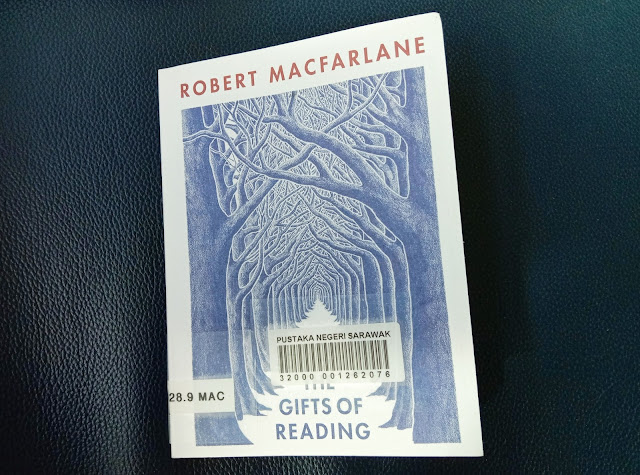 |
| On the Future: Prospects for Humanity (2018) by Martin Rees |
I enjoy watching the YouTube Originals series on The Age of A.I. eight science-documentary episodes covering the ways how Artificial Intelligence is and will change the world in various fields such as robotics, health, food, space travel, relationships, and others. It is narrated and hosted by Robert Downey Jr. with the vibe of Tony Stark’s coolness and humor (actually it is more interesting if J.A.R.V.I.S. or F.R.I.D.A.Y. be the one who narrated the series). I’m always fascinated by how fast we humans have progressed in terms of knowledge, science, and technology. It is both creates excitement and anxiety. When I watched the series, I realize that the producers want to highlight the wonderful positive aspect of A.I. implementations in many areas of our human experiences, but I still can’t help to think realistically (with a mix of negative thinking), of “what if” this or that happened. What if we create evil Ultron with the good intention to protect ourselves? What if there are powerful but bitter people like Magneto who decided to choose only special people like them to survive? What if there are people with the Thanos ideology that in order to bring peace and order there must be wars and necessary sacrifices needed to be made?
These existential questions and more leads me to this book. Martin Rees, an Astronomer Royal, renowned scientist, and futurist, examines the critical issues that will define the future of humanity on earth and beyond. His insights into cutting-edge science and technology and global trends are very helpful. His main argument is that if we approach the future with short-term thinking, polarizing debates, alarmist rhetoric, and pessimism, we are doomed to extinction (my language). But if we take responsibility for the future NOW with long-term thinking, rational discussions, solution-oriented partnership, globally, collectively, and optimistically, we can flourish. “This book offers some hopes, fears, and conjectures about what lies ahead,” said Martin who doesn’t claim to be a prophet of the future but trying to act like one anyway due to the urgency of the subject at hand. “Surviving this century, and sustaining the long-term future of our ever more vulnerable world, depends on accelerating some technologies, but responsibly restraining others. The governance challenges are huge and daunting.” I agree. As a Christ-follower, I wholeheartedly believe that the future is in the hand of the sovereign God. But from the humanistic perspective, as the author seems to be one (he said he is a ‘cultural Christian.’ It doesn’t matter what he meant, for this book is not a Christian book anyway), the future is in our hands.
Overall, On the Future is an excellent read. The author’s careful and brief treatments on the issues like nuclear threats, eco-threats, climate change, biotech, cyber technology, human consciousness, robotics, A.I., and spaceflight are both encouraging and alarming for obvious reasons. Of course, a book like this is not without speculations such as the possibilities of our dominion outside our planet (for example, colonization of Mars), and the ongoing search for extraterrestrial intelligence. I find that it is interesting when Martin also discusses the limits and future of science. By the way, I want to share one thing that probably going to spark your interest. This book is published in 2018 and about two years after that, in March 2020, the WHO declared COVID-19 a global pandemic. This is a glimpse of one of Martin’s worst nightmares coming true when he wrote: “Pandemics are an ever-present natural threat, but is it just scaremongering to raise concerns about human-induced risks from bio error or bio terror? Sadly, I don’t think it is. We all know too well that technical expertise doesn’t guarantee balanced rationality. The global village will have its village idiots and they’ll have a global range… Bio error and bio terror are possible in the near term - within ten or fifteen years. And in the longer term, they will be aggravated as it becomes possible to ‘design’ and syntheses viruses - the ‘ultimate’ weapon would combine high lethality with the transmissibility of the common cold.” 10 to 15 years, huh? How about 1-2 years?!
After I finished reading this book, I still have the “what if” questions about the future of humanity from the humanistic perspective. The difference is that I have moved from some (Oh, there are many!) of my ignorance to more informed “what if” questions.
#ServeToLead #LeadersAreReaders #OnTheFuture #ScienceAndTechnology #LetsMakeReadingCoolAgain
[P. s: Two other issues/topics that are important, in my opinion, that should be covered in a book on the future like this one are cryptocurrency and the metaverse. Check it out!]
To read my other book reviews (and articles) based on science, CLICK HERE
FB Page: https://facebook.com/LEGASI.tv/
Podcast: http://bit.ly/LegasiSpotify
YouTube: https://www.youtube.com/c/LEGASItv/
THINK BIG. START SMALL. GO DEEP.

















